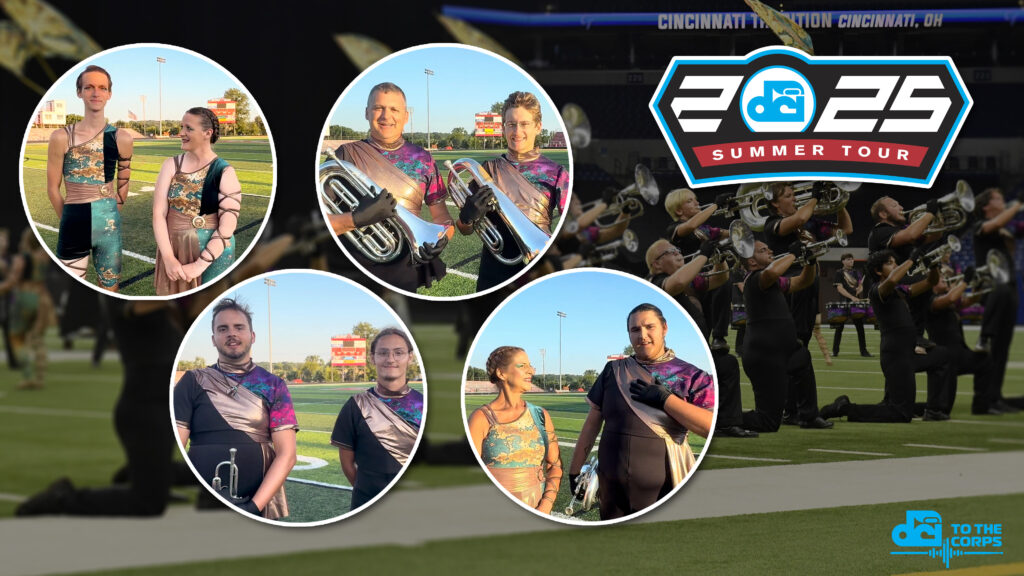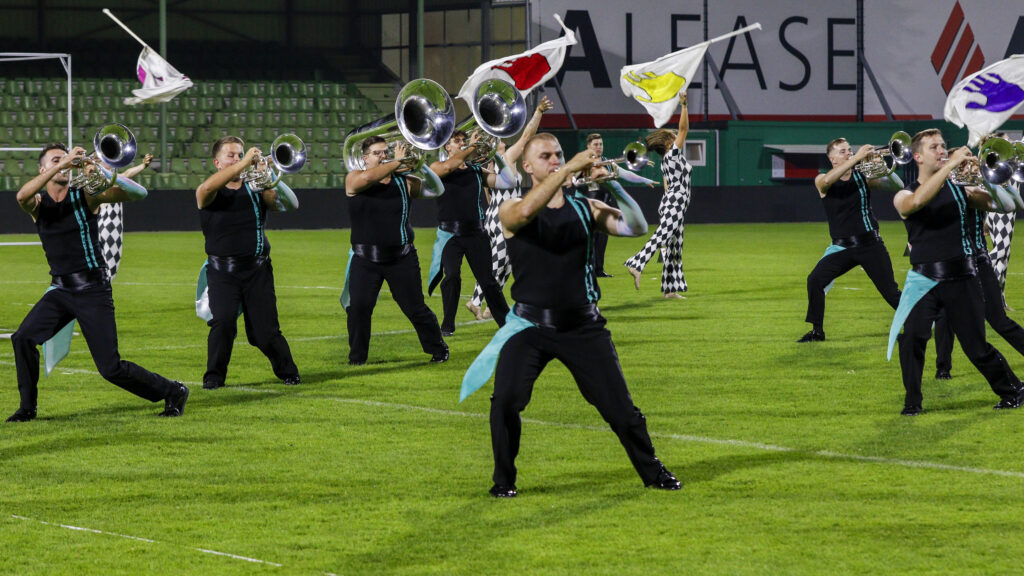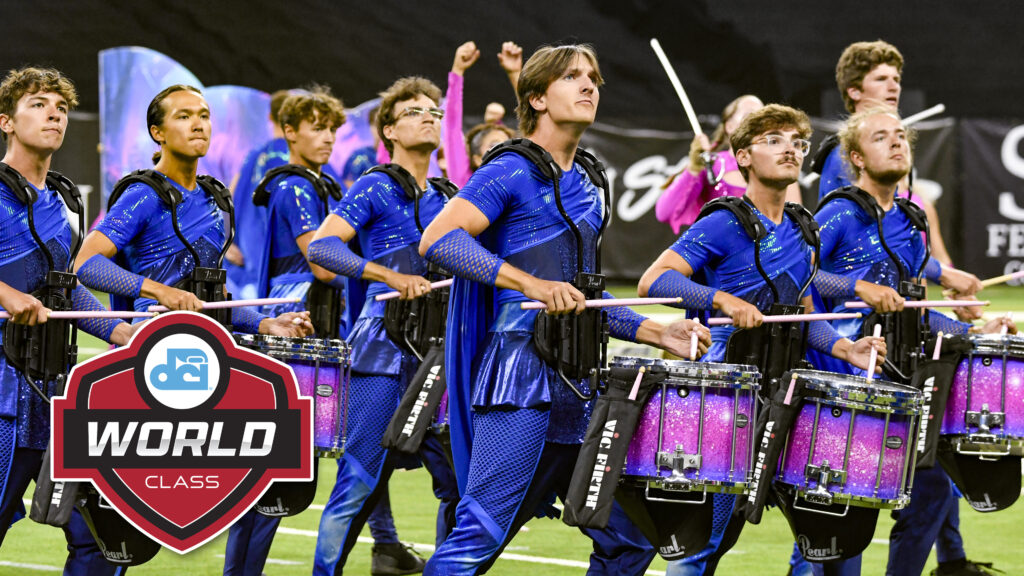The biggest talk through the tail end of the 1990 Drum Corps International Tour was whether the Blue Devils or Phantom Regiment would remain undefeated come the DCI Midwest Championship at the end of July. When the dust settled, the Cavaliers beat both corps at that event in Whitewater, Wisconsin, however it was the Cadets of Bergen County who would leave the field last at the World Championship Finals weeks later just outside of Buffalo, New York.
Interestingly, the two formerly undefeated corps tied for fourth place at the 1990 Finals, finishing under Cadets, Cavaliers, and Star of Indiana. Also, for the first time in DCI history, there wasn’t a California corps in the top two placements.
This year the seventh-place Crossmen introduced new uniforms for their show based entirely on the music of New York Voices, a vocal music ensemble formed in 1987 by five alums of Ithaca College, home of the 1974 DCI World Championship. In 1989, the ensemble released its first album, simply titled “New York Voices.” Of note, their drummer at the time was Tommy Igoe, a former member of the Bridgemen.
The show opened with “Baroque Samba,” a New York Voices original. As evidenced by the title, the piece combined the disparate elements of the Baroque style with a Latin samba.
The corps started with a relatively slow and soft chorale treatment of the melody, moving into an asymmetrical, off-centered form that at first appeared to be almost symmetrical. Only the color guard within the visual form was evenly staged. It was representative of the slightly off-kilter jazz treatments to come, which at first sounded somewhat typical for jazz, but upon closer listen were found to contain many wonderful permutations that were anything but traditional.
Enhancing the music was the color guard’s off-one-shoulder, long-skirted gowns with white headbands that would have been equally at home in a ballroom as featured on the street during a samba parade.
Next the corps presented the jazz standard, “‘Round Midnight,” a modern take on the 1944 work by jazz pianist Thelonius Monk. The piece, in its many forms, is the most recorded jazz standard in history. The only jazz musician whose music is recorded more often than Monk is Duke Ellington, incredible considering Monk wrote about 70 jazz works, while Ellington wrote more than a thousand.
The tune started rather normal for a rendition of the jazz classic, then morphed into a simmering symphonic swing. In the New York Voices rendition, this segment was interpreted with vocalise, a vocal technique where vowel sounds are sung in place of actual words.

The third tune in the show evolved out of the end of the prior selection and was another New York Voices take on a jazz standard, Juan Tizol’s “Caravan.” Duke Ellington was the first to record the work in 1936, and its infusion of exotic jazz sounds created quite a scene among other jazz musicians.
The percussion was prominently featured during this piece, which started with the color guard removing their blue-colored skirts to reveal long white skirts underneath, prior to manipulating long purple banners into unusual shapes. The on-field percussion section mimicked the honky-tonk rhythms of the front ensemble keyboards prior to a full-brass shout out that ended the work at full volume.
The final three minutes of the show featured “Now or Never,” another New York Voices original that utilized vocalise effects as well as lyrics from the ensemble’s debut recording. Dancers in the color guard adorned their arms and waists with the vibrant colors of their flags, which seemed to borrow from the color palate of a Carnival calypso. The work was arguably one of the top feel-good drum corps charts of the early 1990s.
1990 Overview

Michael Boo was a member of the Cavaliers from 1975-1977. He wrote about the drum corps activity for more than 35 years while serving as a staff writer for various Drum Corps International projects. During his lifetime Boo wrote for numerous other publications including an honors-winning book on the history of figure skating. He also was an accomplished composer. Boo passed away in 2020 and was inducted into the DCI Hall of Fame posthumously in 2021.





